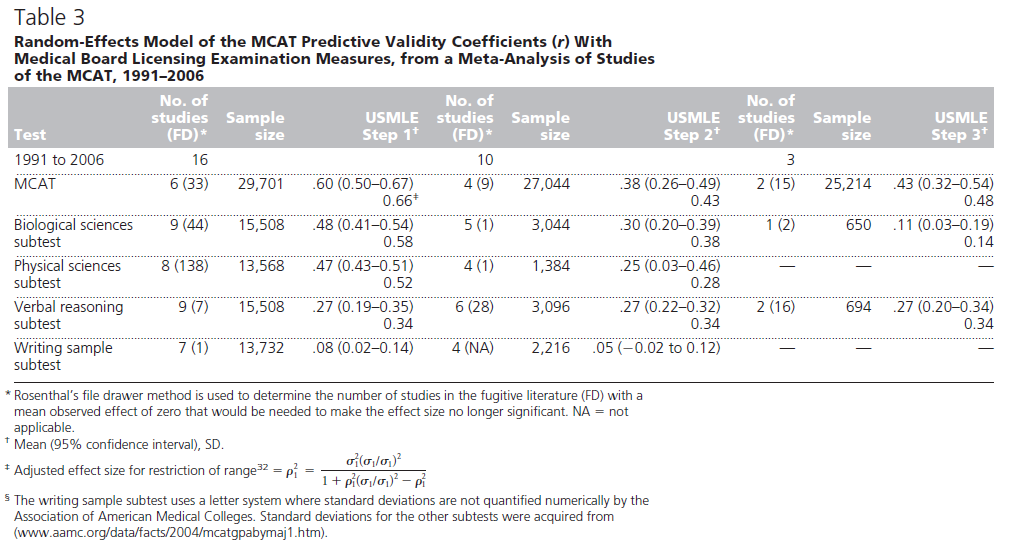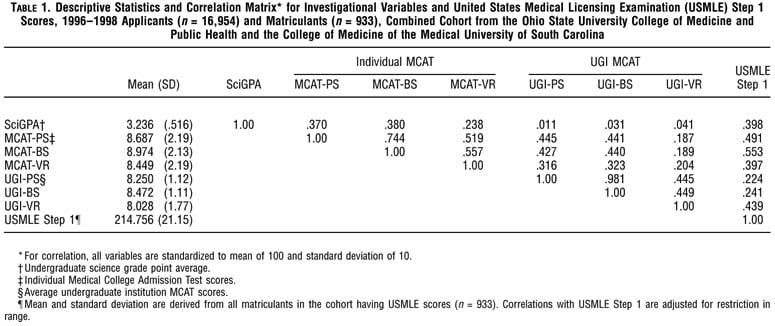- Joined
- Aug 24, 2001
- Messages
- 5,527
- Reaction score
- 1,683
It seems to have been 6 years since one of these posts were done. Someone stated that there isn't a correlation between MCAT and USMLE. This is a pretty big study that says there is. People who tend to do good on the SAT also do good on the MCAT also do good on the USMLE and also tend to do well in life. I'm kind of shocked that people even question this.
Undergraduate Institutional MCAT Scores as Predictors of USM... : Academic Medicine
Undergraduate Institutional MCAT Scores as Predictors of USM... : Academic Medicine





